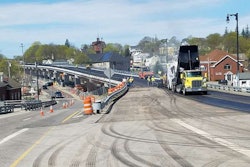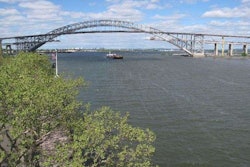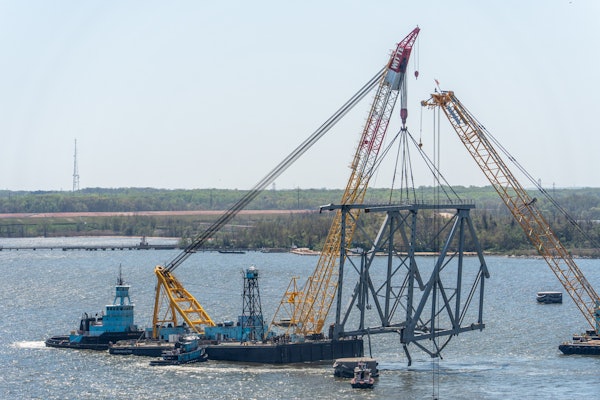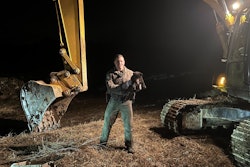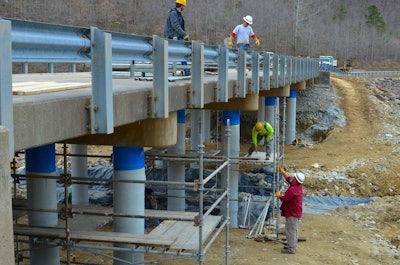 Members of the U.S. Army Corps of Engineers and graduate researchers from West Virginia University conduct repairs on the East Fork Bridge in East Lynn, West Virginia, March 27, 2014. The two entities partnered on the research and development of new applications of composite materials in civil works project rehabilitations including East Fork Bridge. Photo credit: U.S. Army
Members of the U.S. Army Corps of Engineers and graduate researchers from West Virginia University conduct repairs on the East Fork Bridge in East Lynn, West Virginia, March 27, 2014. The two entities partnered on the research and development of new applications of composite materials in civil works project rehabilitations including East Fork Bridge. Photo credit: U.S. ArmyHoto GangaRao, a researcher at West Virginia University (WVU) and director of the Constructed Facilities Center at WVU, believes the nation’s deteriorating roads and bridges can be “renewed” with a polymer-based product that has already been tested on two bridges, The Intelligencer, Wheeling News-Register reports.
GangaRao has created another polymer product, an FRP wrap that is applied to wet concrete or lumber to strengthen a deteriorating structure. Unlike steel, the FRP wrap doesn’t deteriorate. GangaRao says he has conducted aging tests to show the material will last about 100 years “at a minimum.”
“I think we should not be thinking about ripping out or replacing infrastructure,” GangaRao said during the WVU Academic Media Day, according to the news agency. “What we should be thinking about is renewing infrastructure. This would save a tremendous amount of dollars, time, and user inconvenience,” he said, adding that the price to renew a bridge with FRP is approximately $70 a square foot, as opposed to the cost of replacing a bridge at about $160 per square foot.
